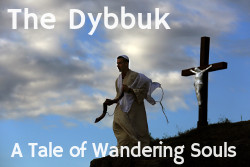"Zbig (Zbigniew Rybczyński)" - Description
Zbigniew Rybczyński is one of the most outstanding polish filmmakers. In 1983 he won an Oscar for his short film „Tango”. He experiments with visual arts, using most modern electronic technologies. His films surprises with a grand scale staging. “The Orchestra” (“Orkiestra”) or “Kafka” are multimedia accomplishments, which successfully break down the barriers that separate traditionally understood filmmaking from video art or TV commercials. In his later films Rybczyński uses a system of a computer controlled camera called motion control. Thanks to this, the blue box technique and computer picture mastering Rybczyński is able to record separately actors, background, set design, props and combine them into a harmonious whole. In such way he obtains effects impossible to achieve with traditional filming methods. According to Rybczyński that is the way film art should follow. Rybczyński is also instructor and inventor, well up on newest technical achievements. At present he is working in Cologne where he is a professor at Medien Akademie. He is also working on a project of a camera that would have viewing angle of 180 degrees. His dream is to create such method of recording the images which would render exactly human vision including the tip of his nose.
On the picture Zbigniew Rybczyński on the film set in Zamek Ujazdowski (Ujazdowski Castle).
Film Festival in Sanok 2001, catalogue
The idea of the film about Zbigniew Rybczyński was to portray the artist in the context of time and space. Together with him we take a trip to the world of fiction created by him. The artist is our guide through his own films and his biography. The film shows the way he is following from earliest of his quests, realizations and creative experiences up to today. It leads to a point where he is now, to works and realizations that he is taking up. Rybczyński comments on his works are appearing on the monitors. He starts with the films made in the 70s in The National Film, Television & Theatre School in Łódź and in Semafor, through the video clips made in the middle of the 80s in the USA and Western Europe with help of newest video techniques. Rybczyński speaks about technical details of his film experiments. In “Kwadrat” (“The Square”) the images comprise of squares-pixels, just as it is in a modern computer image. In “Nowa książka” (“The New Book”) he divided the screen into 9 frames in which actions are set simultaneously. The character gets over from one frame into the other. In “Tango” there are twenty characters to be seen on the screen in the fever pitch. Each and everyone were recorded separately. To join them in one image requires enormous precision and hand-making of 30 000 masks. In „Steps” („Schody”) in the famous sequence of the masquerade on the Potemkin Stairs contemporary actors were set in. In his later films Rybczyński uses constructed by him computer controlled camera called motion control. Thanks to this, the blue box technique and computer picture mastering Rybczyński is able to record separately actors, background, set design, props and combine them into a harmonious whole ("Kafka", "The Orchestra", "Steps", "Czwarty wymiar – The Fourth Dimension"). In such way he obtains effects impossible to achieve with the traditional filming methods. So we get to know Rybczyński also as an engineer and inventor, perfectly familiar with newest technical achievements. Finally we find out about his current projects and his future plans. We see his studio in Cologne where Rybczyński presents a project of a camera that would have viewing angle of 180 degrees. His dream is to create such method of recording the images that would render exactly human vision including the tip of his nose. The film includes also family photographs of Rybczyński and materials showing Rybczyński while making his films.
Kino.Lab programme
A review of Zbigniew Rybczyński films and a review of films from Osnabrück Festival are most interesting March presentations in Kino.Lab. A review of Zbigniew Rybczyński films has been divided into two parts. In the first one (9th-11th March) we will see a documentary “Zbig” directed by Natalia Koryncka-Gruz. The director comments on his works and talks about technical details and his future plans. After the film Rybczyński will have a meeting with the audience. On Saturday, 10th March a seminar concerning the author of „Tango” will be held. In the second part of the review films will be presented that Rybczyński made in Poland, among those “Kwadrat” ("The Square"), “Nowa książka” ("A New Book"), “Zupa” ("The Soup" ) and those by the making of which he acted as cameraman.
(MSP), "Gazeta Wyborcza", 8th March 2001/p>



















